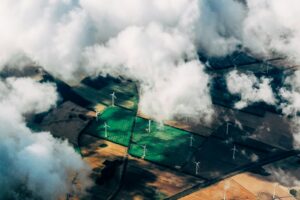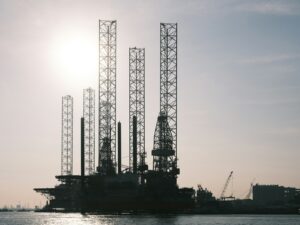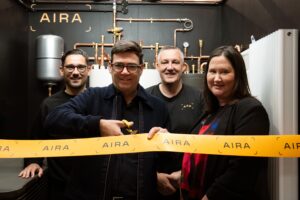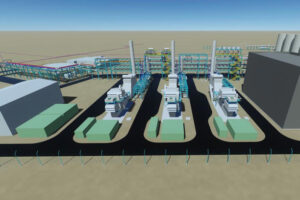Channel 4 climate debate – a spirited discussion on the biggest topic of our times
Last night (November 28), UK party leaders took part in a Channel 4 debate on the climate crisis, but the absence of Prime Minister Boris Johnson threatened to overshadow what was a lively and spirited discussion on the biggest topic of our times.

Sian Berry from the Green Party, Jeremy Corbyn from Labour, Adam Price from Plaid Cymru, Nicola Sturgeon from the SNP, and Jo Swinson from the Lib Dems took part in the debate.
However, Prime Minister Boris Johnson and Nigel Farage did not accept their invitation with Johnson’s father Stanley Johnson telling a Channel 4 reporter: ‘Prime Ministers have their own diaries, that is the reality of the world.’
Cabinet minister Michael Gove attempted to take the Prime Minister’s place, but as this was a leader’s debate his offer was declined.
The Conservatives have since threatened to review Channel 4’s broadcasting remit if they win the general election.
Replacing the two missing politicians were two ice sculptures, a metaphor for the immediacy of the climate crisis.
A group of three scientists from Oxford, Cambridge and Lancaster University oversaw the panel in order to fact-check and provide a concluding comment on the debate.
Krishnan Guru-Murthy, chair of the debate, began by asking the politicians individually on their net-zero goals and how they plan to achieve them.
Corbyn and Berry both declared the ambitious goal of reaching net-zero emissions by 2030. It’s highly ambitious and UN Secretary-General António Guterres has previously said that just to reach net-zero emissions by 2050 will be a ‘monumental task requiring immediate action and fundamental shifts.’
Sturgeon commented that Scotland has committed to reaching net-zero by 2045, with a commitment to reduce emissions by 75% by 2030, a perhaps more realistic target.
The debate then moved onto the question of food.
Price emphasised that farmers need to be ‘our allies and not our enemies,’ saying: ‘It is a myth that the IPCC report advocated a move away from meat and milk. Animals fed on grass actually make a positive contribution.’
Corbyn, the only plant-based consumer on the panel, said that we cannot expect everyone to become vegetarian overnight, but ‘it’s great to see that meat consumption is falling.’
He also said that the focus needs to be on where our food is coming from, and he emphasised the need for food to be grown at home in order to stop fruit and vegetables from being shipped from all across the world.
Berry has said that the Green Party will implement a tax on meat and dairy in order to see an industry change on how we manage our food and consequently our land.
On the topic of transport, Swinson advocated the need for a frequent flyer tax for those who take more than three international return flights annually. This move has been criticised after a report revealed that between 2017 to January 2019, Swinson took 77 flights from her Scottish constituency to London.
There was heated debate around the future of HS2. Berry advocated plans to cancel HS2, she said it is a wasted opportunity when the money could be spent on investing in local sustainable transport systems.
In contrast, Sturgeon saw HS2 as a positive move for the climate crisis, arguing that with more accessible travel throughout the UK it will encourage people to fly less.
Corbyn provided the relevant anecdote of the night when he discussed the time he booked travel to Berlin and saw that a single flight cost £19 but a single train journey cost £240. He went on to emphasise the importance of reducing rail fares to Europe, encouraging people to use the Eurostar against short-haul flights.
The next topic for discussion was the energy-efficiency of UK housing, something which globally the UK is falling behind on.
Swinson emphasised the importance of retrofitting homes, with a plan to help low-income homes to do this.
Corbyn commented that Labour’s Green Transformation fund will provide investments towards zero-carbon homes, with interest-free loans being available to encourage households to take this step.
In the debate on biodiversity, Berry reinforced that the HS2 would be going straight through historical natural woodland. She emphasised plans to protect woodland and protecting the soil by moving away from traditional pesticide farming methods.
Sturgeon emphasised the need for increased funding towards peatland restoration, with a continued emphasis on the fact that Scotland is leading the way, having planted 22 million trees in 2018.
Corbyn reinforced Labours plan to plant £2bn trees by 2040, for which he showcased his plan, ironically printed on paper.
The debate was brought to a conclusion by the all-female panel of climate scientists.
Rebecca Willis, climate scientist from Lancaster University of concluded: ‘Credit to the politicians for turning up and competing over climate policies, it hasn’t happened before and its where we need to be, people are willing to play their part but politicians need to be consistent, one thing I’ve heard is there isn’t that consistency, you cant tell people how to live their lives if you as a party are supporting high carbon projects.’
The key environmental policies in each party manifesto are below:
The Conservative Party manifesto includes a goal to reach net-zero emissions by 2050 with plans to invest in clean energy solutions and green infrastructure.
The Labour Party has pledged a green transformation fund of over £250bn for the next ten years. They have also promised a new national park transformational programme, by increasing funds by 50% and creating ten new national parks.
The Lib Dems has promised to reach net-zero emissions by 2045 and has said they will completely decarbonise the power sector.
The Green Party has promised a Green New Deal, with investments of over £100bn in housing, transport, industry, food and energy.
The SNP has pledged to reach net-zero by 2045 and has said that all oil and gas receipts will be put in a ‘net-zero fund’ focusing on measures to tackle climate change.
Plaid Cymru has said they will invest £15bn into a green jobs ‘revolution’ and they will electrify the main rail lines in Wales by 2030.















